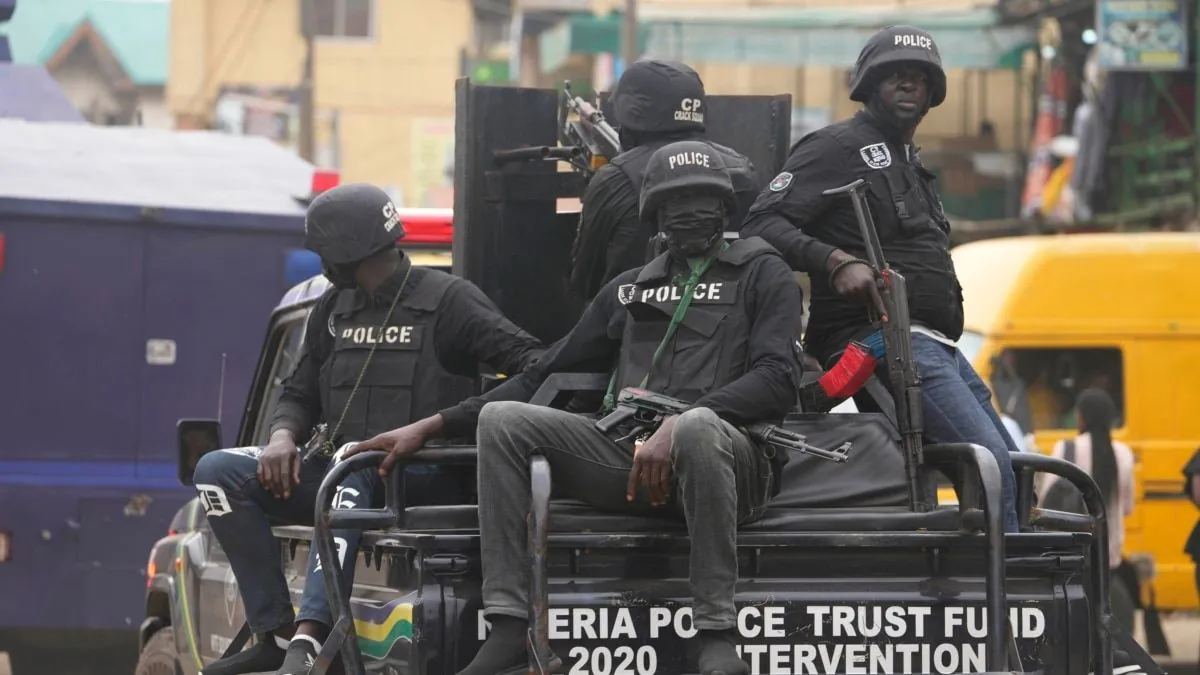Deadly Clash in Abuja: Islamic Group Attacks Nigerian Police Checkpoint
Two Nigerian police officers killed in an attack by the banned Islamic Movement of Nigeria in Abuja. The incident involved explosives and knives, reigniting tensions with the Shi'ite group.

On August 20, 2024, a violent incident unfolded in Abuja, Nigeria's capital, resulting in the deaths of two police officers and injuries to three others. The attack, attributed to the Islamic Movement of Nigeria (IMN), a banned Shi'a Muslim organization, has reignited tensions between the group and Nigerian authorities.
According to police spokesperson Josephine Adeh, members of the IMN launched an unprovoked assault on a police checkpoint. The attackers reportedly wielded machetes, knives, and improvised explosive devices. In addition to the casualties, police vehicles were set ablaze during the confrontation.
This incident is the latest in a series of clashes between the IMN and Nigerian security forces. The group, founded by Ibrahim Zakzaky in the late 1970s, has a long history of conflict with authorities. In 2019, the Nigerian government officially proscribed the IMN following violent protests demanding the release of their leader.
The roots of the current tensions can be traced back to 2015 when the Nigerian army accused the IMN of attempting to assassinate a former chief of army staff. In response, the military allegedly retaliated, resulting in the deaths of over 300 IMN members in Zaria, Kaduna State. This incident drew condemnation from human rights organizations worldwide.
Ibrahim Zakzaky, the IMN's leader, was subsequently imprisoned from 2015 to 2021, along with his wife, without trial. Their detention was a major point of contention between the group and the government.
The IMN, also known as the Shiite Islamic Sect in Nigeria, advocates for an Iranian-style Islamic republic in the predominantly Sunni Muslim north and Christian south of Nigeria. This ideological stance has contributed to the group's strained relationship with the Nigerian government.

Despite the IMN's claims of being a peaceful movement, Nigerian authorities have accused the group of terrorism and posing a threat to national security. The organization's activities, including annual Ashura processions, have sometimes led to clashes with security forces and traffic disruptions in major Nigerian cities.
The ban on the IMN in 2019 was criticized by some as a violation of religious freedom. However, the Nigerian government has maintained its stance, citing security concerns. The group has received support from Iran, which has criticized Nigeria's treatment of the Shi'a minority.
As investigations into the recent attack in Abuja continue, the incident serves as a reminder of the ongoing tensions between the IMN and Nigerian authorities. The situation highlights the complex interplay of religious, political, and security issues in Nigeria, Africa's most populous nation.
"The proscribed organisation attacked the police checkpoint unprovoked, wielding machetes, improvised explosive devices and knives."
This latest clash underscores the challenges Nigeria faces in managing religious diversity and maintaining security while respecting human rights and religious freedoms. As the country grapples with these issues, finding a peaceful resolution to the conflict with the IMN remains a significant challenge for Nigerian authorities.


































